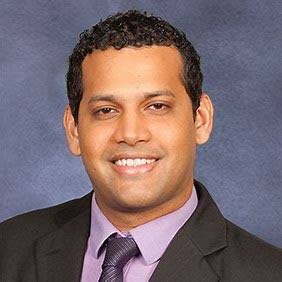TTIFC CEO: 200,000 unbankable people in Trinidad and Tobago

THERE are approximately 200,000 people in Trinidad and Tobago who are unbankable (do not use or do not have access to any traditional financial services including savings accounts, credit cards and debit cards).
TT International Financial Centre (TTIFC) CEO John Outridge made this comment during a panel discussion on day two of the virtual UN-TT Big Data Forum on Wednesday.
Also participating in this virtual discussion were Finance Minister Colm Imbert and Development Bank of Latin America (CAF) TT representative Gianpiero Leoncini. Outridge said a 2020 survey done by CAF estimated there are 1.5 million bank accounts, 700,000 debit cards and 200,000 credit cards in use in TT. But regarding the latter, he continued, the survey said people who have debit and credit cards only use them 40 per cent of the time to make payments. This suggested a continued reliance of these people to make most of their payments in cash.
Outridge said this is not a matter of enabling online credit or debit card payments.
"We have to look at the data to see what are the access opportunities, particularly as it relates to the most vulnerable in society."
He said cash creates a huge problem in TT and throughout the world with respect to opportunities for fraud. This is one of the reasons why there is a push in many countries towards more cashless economies.
Outridge said the CAF survey also estimated that 200,000 people in TT are unbankable and exist in the informal economy. As TT moves towards a more cashless economy, he suggested efforts be made to encourage these people to join the formal economy.
Imbert acknowledged Outridge's comments.
"It is not as easy as it was to get a bank account 20 years ago."
He said some people find the process to apply for a bank account to be complicated and either choose not to complete the process or have no bank account at all.
"One of the things the Ministry of Finance is doing is creating an enabling environment (to encourage the unbankable to become part of the formal economy)."
Referring to Outridge's earlier point about debit and credit card usage, Imbert said he knows young people who studied abroad, who use debit or credit cards to make payments but become confused when they return home and are asked to make cash payments.
"In fact, there are some young people who have no cash with them at any time."
Against this background, Imbert said Government continues to encourage firms and companies to invest in technology that would permit more cashless transactions.
"At the end of the day, it is going to be cheaper, easier, faster, quicker, more efficient to use digital technology to conduct so many services. Leoncini agreed with Imbert and Outridge about the potential which big data offers many countries.
He said CAF has a special division which works with governments in Latin America and the Caribbean to improve technological in different spheres of their operations.

Comments
"TTIFC CEO: 200,000 unbankable people in Trinidad and Tobago"